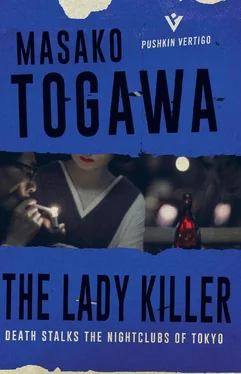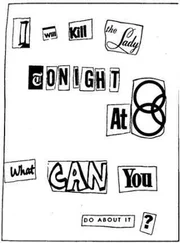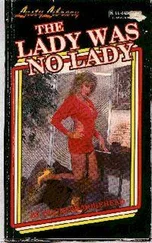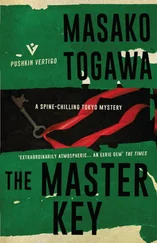Gave evidence on the relationship of the accused with the murdered women.
Other witnesses, also.
But, most significantly, the accused was unable to call a single witness to testify as to his alibi.
PART 2
Collecting the Evidence
1
Hajime Shinji hastily got up from the mattress and quilts on the floor, which made up his bed, and pulled a shirt with a dirty collar over his torso. Without pausing to choose, he grabbed the nearest tie he could find and knotted it around his neck. The rest of his toilet was just as perfunctory, and within minutes he was on the way out of his room, leaving the bedding rumpled just as it was on the floor. There was a newspaper in his letterbox; without glancing at it, he rolled the pages, which still smelled of fresh ink, and stuffed it into his pocket and hurried off down the street.
Such had been the daily pattern of Hajime Shinji’s life since he had graduated from the Regal Institute of Law and Research and begun work as an attorney at the Hatanaka Law Office.
On the station platform he bought two bottles of milk and gulped them down as he waited for the train. It arrived, and he was borne along in the throng and squeezed into the crowded compartment.
Shinji was not tall—a mere five feet three inches—but his swarthy face and muscular body gave him an appearance of intrepidity. His main problem nowadays was that he was beginning to lose interest in the work that had so fascinated him when he had first joined the law office. As his curiosity had become blunted, everything he did seemed to become reduced to mere routine and became meaningless to him. The courts, which had once seemed to him to be the personification of legal solemnity, now seemed no more than gray buildings where the same futile arguments were continuously repeated. Hajime Shinji was bored.
The chief of the law office where he worked was Kentaro Hatanaka. A senior figure in the profession, he had completed two terms as president of his local lawyers’ association and was well known for the articles he wrote for magazines. He had saved many men from the death sentence and was much in demand as an appeal lawyer. But he had his enemies. They would say of him that he courted publicity, or that, with his reputation, he took work away from other lawyers. It was further alleged by his critics that he only took on cases when victory seemed certain. And, most of all, his colleagues criticized him for taking on cases even when it seemed certain that the defendant could never pay. This was regarded as a particularly obnoxious form of self-promotion.
Shinji had no patience for such views. The reason that he had joined Hatanaka’s practice in the first place had been his deep sense of respect for this upright old man, alone in the world without wife or child, a humanist whose whole life rotated around trials in court, and who applied himself to everything he did in a manner that made it clear that he believed it to be worth doing.
And yet, despite his respect for Hatanaka, Shinji’s life had recently come to seem empty. For his ambition had always been to be a judge and not a lawyer. It had been this dream that had sustained him through all those night classes at the Regal Institute after his grueling day’s work as a forwarding clerk at a department store. When, to reduce the long vista of study that lay before him, he had opted for the attorney’s course rather than the judicial one, he had felt guilty; he was letting society down, he thought, merely for considerations of his own welfare. And this feeling still remained with him.
A lawyer should be proud of his profession; he knew that. But what was the purpose of a life passed as a public defender in so many trivial cases? It had become his lot to defend petty filchers, sneak thieves, and demented people who set fire to garbage piles and were accused of arson. Once, he had been involved in a case where a teenage boy had stabbed a taxi driver in order to rob him of the princely sum of two thousand yen. His ambition was to become involved in some great and dramatic case where love and hate were intertwined; gradually he had come to realize that, in real life, such cases did not exist for him.
Such, then, were his thoughts as he went to work today. But today, had he but known it, was different, for the Hatanaka Law Office had just accepted the Appeal Court case of Ichiro Honda.
It was a week later when Shinji was sent for by Hatanaka. He found his chief deeply ensconced in the comfortable leather chair behind his desk, smoking a pungent cigar.
“Sit down,” the old man said. “Yes, there will do. Now, you have read the reports of the Ichiro Honda murder trial, haven’t you?”
“Yes, sir,” Shinji replied. “I even went to one of the sessions, as the defending counsel, Wada, was my senior at law school.”
“Indeed? Well, Wada will be helping us in the appeal case, too. A serious-minded fellow, that. All right in his way, but lacks flexibility, wouldn’t you agree? He’s too cautious; unimaginative, too. Well, I won’t ask you to comment on your senior.”
The old man fell silent for a moment, his worn-out eyes fixed upon the drifting smoke of his cigar. Then he began to speak again.
“What do you think of the Honda case?”
Shinji had observed Honda in the prisoner’s box at the trial, although he had mostly only seen his profile. To tell the truth, he had felt no particular interest in this man who had sat with downcast eyes as the prosecutor had launched into a peroration on how he had strangled women merely to satisfy his abnormal sexual instincts.
“Well, I got the impression that although Honda is essentially a weak man, he could, nonetheless, be capable of the cold-blooded acts of which he was accused.”
He picked his words carefully and the old lawyer detected this and smiled.
“Yes, well, I daresay you are right. But nevertheless I’m not satisfied. It doesn’t fit, somehow; murder doesn’t go with my image of the defendant.”
He paused again and then went on.
“Think of it this way. We know that Honda was a lady’s man. Why, then, did he only become a monster with those three women? With so many victims of his sexual charm, why only those three? Did he try it and fail in other cases, I wonder? If he is such a pervert, did he have, shall we say, unconsummated affairs? Were there others he tried to strangle without success?”
“I don’t think the police went into this aspect far enough. They were just out for a conviction; that’s their job, I suppose. But I agree that the other women of his acquaintance should have been investigated. I suppose they didn’t want to come forward for obvious reasons.”
“Quite. So I’ve got a little job for you. I want you to contact Honda’s other girlfriends and see what you can find out.” Hatanaka looked quizzically at Shinji, blowing a smoke ring the while.
“But how can I find them?”
“Oh, that’s easy enough; I’ve got a list. Here it is. Wada got a detective agency to track them all down. Of course, it’s only a fraction of the women he has been involved with, but it will do for a start. Find out if he ever seemed violent or threatening with them.”
He passed the list across the desk, and Shinji studied it. Names and brief personal histories appeared, together with sketch maps of the apartments and workplaces of the women.
“Those are all that Honda remembers for sure, it seems. There were plenty more, but he says that they were all listed in his hunting diary, which he claims vanished from his hideout.”
“Hunting diary?”
The old man explained.
“Did he really keep such a diary, do you think?”
“Well, if he did, and if we can find it, it could be an important key to this case. But for the time being, concentrate on the women we know about, and keep me informed.”
Читать дальше












